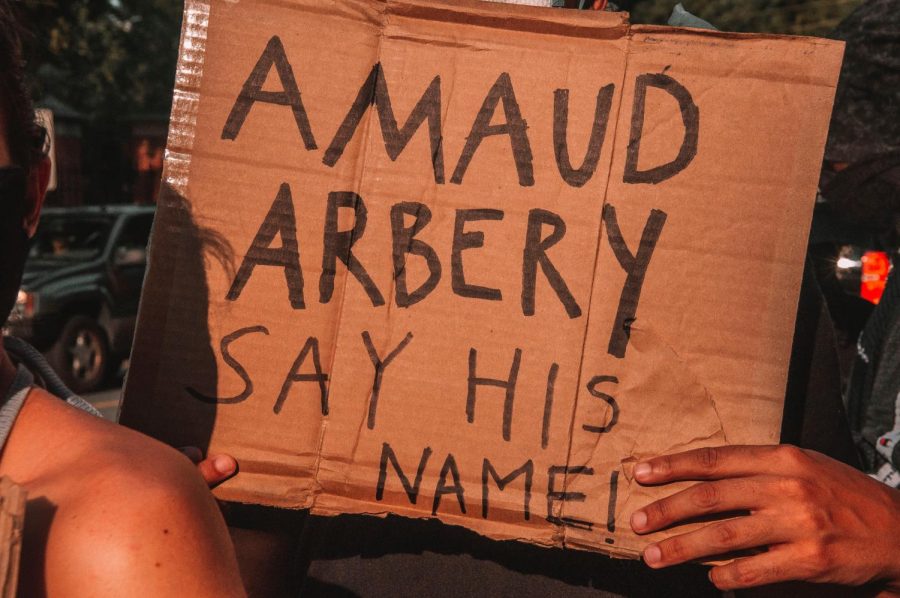The Tragic Death of Ahmaud Arbery
May 19, 2020
On February 23, Ahmaud Arbery, an unarmed African-American man, was jogging in Brunswick in Glynn County, Georgia, when he was violently confronted by Gregory McMichael and his son Travis McMichael, who alleged that Arbery was the burglar responsible for a series of past neighborhood robberies.
“Stop, stop, we want to talk to you,” said Gregory McMichael, as he cut off Arbery from his jog. Travis subsequently exited the pickup truck with a shotgun, and engaged in a fight with Arbery.
Abery was then fatally shot three times, twice in the chest and once in the hand, yet the McMichaels were not arrested that day as the Glynn County Police Department (GCPD) was advised by the Brunswick District Attorney’s Office and the Waycross Judicial Circuit District Attorney, George Barnhill, to refrain from making arrests.
On May 5, a video recorded by a neighbor of the McMichaels was posted on the local radio station WGIG which quickly went viral on YouTube. The video was also widely circulated throughout Twitter after being posted by Arbery’s family attorney. Two days later, the McMichaels were finally charged with felony murder and aggravated assault.
It took the police department and the Georgia Bureau of Investigation 74 days to arrest the McMichaels men. 74 days.
The long delay of the McMichaels’ arrests sparked debates about racial harassment in modern-day America on social media. Public figures, politicians, athletes, and celebrities all expressed their disgust for Arbery’s murderers.
But why did it take so long to arrest the McMichaels?
Right after Arbery was shot, the GCPD rushed to the scene and was ready to arrest the McMichaels, but Jackie Johnson, the Brunswick District Attorney assigned to the case, advised the police “not to make the arrest.” She was also the first to recuse her office from the case, claiming that Greg McMichael had once worked for her as an investigator, which required the office to step away from the investigation.
Johnson asked the Waycross Circuit District Attorney, George Barnhill, to take charge of the case, and he was appointed to the case four days after the crime. However, Barnhill claimed that “he did not see grounds for the arrest of any of the individuals involved in Mr. Arbery’s death,” and that it was “perfectly legal” under Georgia law. Barnhill was the second to recuse himself more than a month after he was appointed, claiming that he also had a relationship with Greg McMichael and his son.
The third prosecutor assigned to the case before the release of the graphic video was Tom Durden, the district attorney of a nearby town, who did not recuse himself. Instead, after the video was released, he was replaced by Joyette Holmes, one of the only seven black district attorneys in the state. These prosecutors are still under fire for not appealing to the urgent nature of the case and for recusing themselves for inadequate and unconvincing reasons. “An arrest of the killers is not enough and we refuse to believe that the system that allowed this family to suffer without an arrest should remain intact. The system must be held accountable,” said Derrick Boazman, a former Atlanta City Councilman who protested for the resignation of the local prosecutors that handled the murder case.
The attack resonated with the African-American community. After the video was released, civil rights groups gathered outside the Glynn County Courthouse to demand action, and many took to social media to demand justice and offer condolences.
Freshman Ziya Brittingham said, “I think this is just another incident where many African-Americans don’t feel safe, especially because the people that are supposed to be protecting us are not doing their jobs.”
Along with many others, Brittingham feels that the police and law enforcement are not doing their jobs properly, which is causing distress to the African-American community, as they are the most susceptible to wrongful arrests. Brittingham added, “Incidents like this will be remembered by the African-American community for many years to come.”
Arbery’s murder not only reveals the inadequacies and faults in our justice system, but it is a reminder of the racial prejudice and the active white supremacy that is occurring in this nation, and of the suffering that minorities, especially African-Americans, have to endure.








